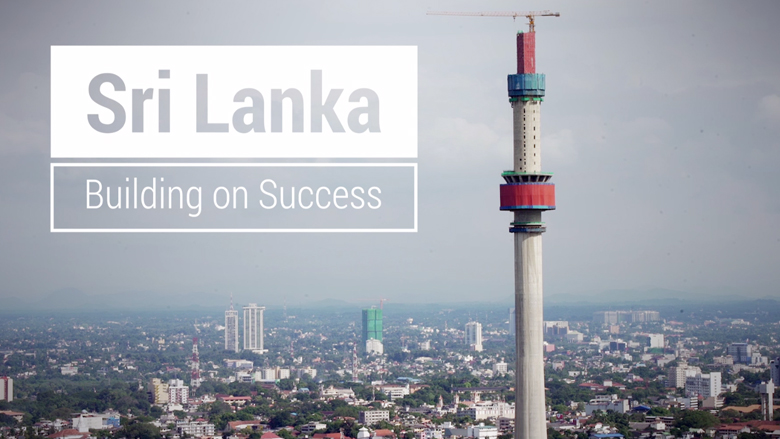Even as Sri Lanka’s post-war economic growth has shown mixed performance for sectors like manufacturing and agriculture, the services sector has seen positive momentum. The services sector is now 59% of the economy and has grown at 5% per year during the last decade, especially the information technology (IT) services sector that has grown at around 14.7% during 2018-2020. A former Minister of Technology noted that the technology sector “has the potential to become the largest export revenue earner for Sri Lanka by overtaking the tourism, tea and apparel sectors, with the employment in the sector increasing by 150-200% over the next few years”. Technology services exports earns around US$ 1 Billion in export revenue each year, contributes over one-third of services exports and 7.8% of total national exports(i). Comparatively, rubber and tea contributed 6% and 9% respectively, despite being in existence for many decades longer (ii). The industry’s vision is to achieve US$ 5 Billion in export revenue by 2022, create 200,000 direct jobs and establish 1,000 start-ups (iii).
There has been increased Government attention in fostering technology jobs and tech-based entrepreneurship through various fiscal initiatives like subsidized credit schemes and seed funding competitions for technology-oriented start-ups (notably, ‘Spiralation’ by the ICT Agency). In addition, concessionary bank loans for students studying technology subjects in higher education, and lower corporate income tax rates for technology sector firms were introduced. The Government has also committed to creating ‘technology parks’ in Kandy, Galle, Kurunegala, Anuradhapura, and Batticaloa (iv).
So, technology services exports are growing, new jobs are being created, startups are being encouraged and infrastructure improvements might encourage more technology firms to set up in areas outside Colombo. But there are concerns that sustaining growth, and making it inclusive, would be constrained by gaps in education and skills.
The National IT Workforce Survey (2019) projected a 12,140-person shortfall of technology graduates each year – much wider than the less than 500 projected in the last survey in 2013. Demand for ‘emerging technologies’ was estimated at 5,323, which amounts to one-fourth of the total demand for graduates. A large section of Sri Lankan youth has not completed higher education, nor skill training— soft skills, digital literacy, and English literacy. According to ILO (2018), ‘one of the most fundamental challenges to a just jobs transition consists in closing the critical gaps in skills and education requirements that rapid technological change creates’, but acknowledges that ‘traditional education and training systems have to undergo major adjustments to make the most of the evolving world of work’ (v). Moreover, low levels of computer and digital literacy in Sri Lanka, which stands at 30.8% and 46.0% respectively (vi), hurt technology sector prospects.
In addition to technical skills, language and soft skills will be key, especially for non-software engineering jobs in the technology sector. English language proficiency is just 22% among those above 15 years, English test scores among grade four and eight students were just 54% and 36% respectively, and there are substantial rural-urban gaps (vii). Compounding the gaps is the fact that language literacy also determines computer literacy. Computer literacy is recorded as being higher among those with English language proficiency, than Sinhala (40%) and Tamil (33%). This in turn interacts with the regional disparities because English literacy is highest in the Western province, while remaining the lowest in North Central, Northern, Eastern and Uva provinces.
Imbalance of technological access and usage could also be a key factor shaping the inclusive growth potential of the IT sector – both across regional and gender dimensions. On regional disparities, the lowest rates of computer ownership (desktop or laptop) per household are seen in Uva (11.9%), Eastern (12.6%), Northern (14.3%), and North Central (15.3%), compared to 35.1% in the Western Province. Consequently, computer literacy also shows disparities – ranging from 45.2% in the Western Province to 18% in the Northern and 19.7% in the Eastern Provinces. On gender disparities, digital literacy among males is 53.7% in Sri Lanka, compared to 46.9% of females. Sri Lanka needs to train teachers in rural provinces to use digital technologies as a tool in teaching, while at the national level adapting the curriculum and school resources to include digital literacy.
Recent economic downturns may have had major impacts on affordability of technology access. Mobile data coverage in Sri Lanka (up to 4G) is now widespread and most households and youth access the internet using mobile devices. Sri Lanka’s internet charges are very affordable and were ranked 3rd most affordable in the world, after Denmark and Israel. But recent analysis has suggested that Easter Sunday attacks and COVID-19 (and its consequences for jobs and household incomes) seem to have affected mobile affordability. Between December 2018 – 2020, many provinces saw declines in mobile subscribers: Eastern Province – 15.8% (sharpest fall); Western Province – 13.4% (60,416 each month); Southern Province – 12.8% (20,416 each month); and Northern Province – 13.7% decline (8,750 each month). Import restrictions on laptops and mobile phones to Sri Lanka, and the depreciation of the Rupee, has made devices harder to purchase and less affordable since late 2020.
For Sri Lankan youth entering the workforce over the next decade, there lies a critical window of opportunity to get equipped for jobs in the digital economy. Rapidly advancing the technical and soft skills training for the technology sector across the country is vital to avoid reinforcing and reproducing existing regional and gender disparities into the emerging digital economy. Sri Lanka needs to focus on enhancing technology access, usage, and literacy across the board, to help workers be better prepared for jobs in the technology sector.
(Anushka is an economist specializing in trade, competitiveness, and innovation, with experience in Government, private sector, and think tanks. He consults for international organizations in Sri Lanka, Pakistan, Myanmar and Maldives, including the International Trade Centre (ITC), UNCTAD, World Bank, ADB, and USAID.)
